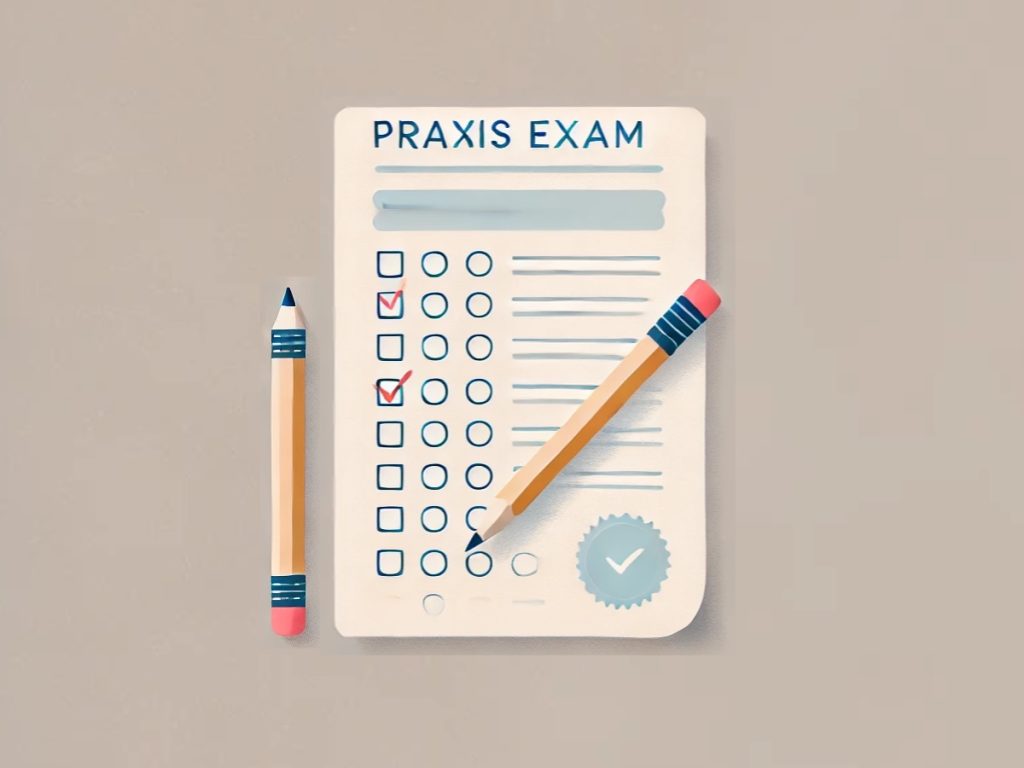How to Become a Speech-Language Pathologist (SLP)
Assisting people to discover their vocal abilities stands as one of the most valuable actions you can provide. Every day, speech-language pathologists help people from all age groups who experience speech problems, such as language difficulties, social communication challenges, cognitive-communication impairments. A few of the ways that SLPs deliver essential support to improve quality of life are by assisting children with stuttering, stroke patients with language recovery, and working with individuals who face swallowing challenges.
Speech pathologists practice their profession in different environments such as educational institutions, healthcare and rehabilitation facilities, and long-term care facilities and private treatment centers. Some professionals choose to deliver their services from home through telepractice. The work demands both scientific knowledge and interpersonal abilities along with effective problem-solving and patient empathy. A career as an SLP seems ideal for you if you enjoy healthcare and education while seeking a profession that creates meaningful change.
Step 1 – Earn a Bachelor's Degree in Speech-Language Pathology
The initial requirement to start a career as an speech pathologist involves obtaining a SLP bachelor’s degree. Students who pursue Communication Sciences and Disorders (CSD) undergraduate programs at universities represent a minority because most students choose to study linguistics or psychology or education. The academic programs deliver essential knowledge that supports future studies in speech-language pathology.
Most SLP graduate programs require students to finish specific prerequisite courses as a condition of admission. Students typically need to take anatomy and physiology of speech and hearing mechanisms together with phonetics and language development and audiology classes. The experience gained through volunteer work combined with internships during your undergraduate studies will provide you with important field exposure to observe professionals while showing you the multiple work settings that speech pathologists encounter.
Step 2 – Complete a Master’s Degree in Speech Pathology
The second step that students take in their journey to becoming a license Speech-Language Pathologist is completing a Master’s of Speech Pathology. It is important before starting the master’s degree to make sure that it is accredited by the Council on Academic Accreditation in Audiology and Speech-Language Pathology (CAA). No one wants to spend 2 years of education to find that they are unable to get the certifications and licenses they need to practice as an SLP. If you don’t complete your degree at an accredited university, this is what could happen. The accreditation process ensures that the program meets ASHA standards which is necessary for both ASHA certification and most state licensure requirements.
The duration of graduate programs extends to two years while students complete academic classes together with clinical training sessions. Students learn about speech and language assessment methods and intervention strategies as well as neuroanatomy and research methods during their studies. Students gain essential professional practice skills through supervised clinical training which includes working with clients who have different ages and disorders.
Students who want to study speech-language pathology have two options between traditional in-person programs and online SLP master’s programs. Online programs provide flexible learning options but students must complete their practicum requirements through in-person clinical placements. You should evaluate which educational format matches your individual learning needs and personal situation.
Step 3 – Gain Supervised Speech-Language Pathology Clinical Experience
The clinical practicum represents an essential part of SLP graduate programs which demands students to finish a certain amount of supervised clinical hours. Students complete their clinical experiences in multiple environments such as educational facilities and medical institutions and rehabilitation facilities and independent practice settings. Students learn to assess and diagnose and treat different communication disorders by working under the supervision of licensed speech pathologists during this period.
Students benefit from clinical practicum through practical application of theoretical knowledge and development of interpersonal skills while working with diverse populations and disorders. The practical training serves as an essential foundation for developing both confidence and competence in future clinical practice.
Step 4 – Pass the Praxis Exam in Speech-Language Pathology
Students who complete their master’s program need to take the Praxis Examination in Speech-Language Pathology which ETS delivers. The assessment evaluates candidate understanding of fundamental content domains through professional practice fundamentals and screening and assessment methods and treatment planning and implementation techniques.
The Praxis Examination in Speech Pathology uses a 100 to 200 scoring scale where candidates need to achieve at least 162 points to pass according to ASHA standards. The Educational Testing Service (ETS) reports that 24,047 test takers scored a median 175 between August 2019 and July 2022 with an average range of 169 to 183.
Institutions show different success rates in their students’ Praxis examination results. The University of Arizona achieved a 100% passing rate for three consecutive academic years but Stephen F. Austin State University reported residential student pass rates at 94.3% and distance learner pass rates at 90.6% during the same three-year period. The provided pass rates do not reflect the complete national pass rate because detailed national statistics are hard to obtain. The examples show that proper preparation enables candidates to succeed in passing the exam.
Don’t panic if you fail your first attempt. Many excellent SLPs have had to retake the Praxis. The exam allows candidates to take it once every 28 days with a maximum of six attempts throughout each calendar year. Study your score report to determine which areas gave you trouble then create a new study plan and extend your preparation time before your next attempt. The need for a second attempt is normal and it will not substantially delay your future career progression as long as you continue your progress.
Study Tips for the Praxis:
- Start early. Give yourself at least 6–8 weeks of focused study time.
- Use the official ETS Praxis Study Companion to get familiar with the test structure and content categories.
- Identify your weak spots by taking a full-length practice test early in your study period.
- Create a study plan and break it into weekly goals so you’re not cramming last-minute.
- Use flashcards or quiz apps (like Quizlet) to drill terminology and definitions.
- Watch review videos or listen to podcasts—especially helpful during commutes or downtime.
- Join study groups or online forums for support, accountability, and sharing tips or resources.
Step 5 – Complete a Clinical Fellowship (CF) Year
After passing the Praxis exam, aspiring speech pathologists must complete a Clinical Fellowship (CF) which requires at least 1,260 hours of supervised professional practice spread across a minimum of 36 weeks. Not all states require a Clinical Fellowship for licensure, but it is required by ASHA for the CCC-SLP certification. This certification is nationally recognized and many SLPs get it as employers use it as an easy measure of an applicant’s qualifications. The fellowship functions as a bridge between academic training and independent clinical practice.
The selection of an appropriate CF site together with a mentor represents a crucial step as it is setting you up to transition to your career. The mentor must be an ASHA-certified professional who will offer guidance and feedback and support during the fellowship. The fellowship period enables fellows to enhance their clinical abilities while building professional expertise and gaining assurance in their capacity to practice independently. If you have a specific area that you are hoping to practice in, this is a good time to gain experience and build relationships.
Step 6 – Obtain Licensure & ASHA Certification
The licensing process for SLPs shows state-by-state differences but requires completion of an accredited master’s program and passing the Praxis exam and clinical fellowship completion. States may require extra documentation including background screening and jurisprudence testing. You must research and follow the unique regulations that govern speech pathology practice in your target state. Check out our individual state pages to get a head start on researching licensure requirements near you!
The Certificate of Clinical Competence in Speech-Language Pathology (CCC-SLP) from ASHA represents a nationally accepted standard of competence. The initial certification has very similar requirements to that of most state licenses, so most SLPs find it pretty easy to get the CCC-SLP. ASHA certification maintenance demands both adherence to their Code of Ethics and completion of continuing education units (CEUs) to remain updated about field developments.
Optional – Pursue a Doctorate Degree in Speech Pathology or a Specialization
After obtaining your license and establishing your career you may choose to get a speech pathology doctorate degree or clinical specialization to increase your expertise. The majority of roles do not need a doctorate but it creates opportunities to move into leadership positions or to work as a university professor or in advanced clinical practice. The path to become a future field leader through research, education or high-level clinical work makes this choice excellent for you.
Speech-language pathology students can choose between two doctoral degree paths. A PhD program focuses on research activities because it prepares students to study communication disorders deeply and perform original studies and teach at academic institutions. Students in these programs must complete research design and statistics and theory advanced coursework and produce a dissertation from their independent investigations. The Doctor of Speech-Language Pathology serves as a clinical doctorate commonly referred to as SLPD. It targets practicing SLPs who want to improve their clinical abilities or create new programs at their workplaces. The SLPD differs from a PhD because it maintains a practice-focused approach without requiring students to write a dissertation.
The duration of doctoral programs varies because students can finish their studies in two years or need five years based on their enrollment status at full-time or part-time or online institutions. The next stage in your professional development could be a doctoral program if you aim to advance as a leader or clinician or educator.
Speech-Language Pathology Salary: How Much Can I Earn?
The U.S. Bureau of Labor Statistics (BLS) in May 2023 reported that speech pathologists earned a median annual wage of $89,290. The wages of speech-language pathologists depend on their location and work environment as well as their level of experience and their chosen specialty. For example, the median annual wage for SLPs working in nursing and residential care facilities reached $105,030 while educational services paid $79,960 on average.
The highest salaries for SLPs are not surprisingly found in California at $112,030 followed by the District of Columbia at $111,110 and Colorado at $107,780. The highest mean wages for speech-language pathologists exist in Hawaii at $106,790 and New Jersey at $102,820. The lowest average earnings for speech pathologists exist in Alabama and Arkansas at $75,510 and $84,060 respectively. The salary differences between regions stem from variations in cost of living expenses and healthcare and education funding levels together with speech-language pathology professional demand in each area.
For a more comprehensive look at SLP Salaries, check out our Salary Guide.
Related Articles

Speech Pathologist vs Speech Therapist: What’s the Difference?
If you have ever been researching speech-language pathology careers and come across the words ‘speech pathologist’ and ‘speech therapist’, you might wonder if they are

What is the Praxis Exam for Speech Language Pathology?
If you are pursuing the position of a speech-language pathologist, then you may have heard of the Praxis exam from your professors, classmates, or even

What is the Speech-Language Pathology Interstate Compact?
If you are interested in pursuing a career in SLP and have been researching licensing requirements or are simply interested in learning more about SLP
